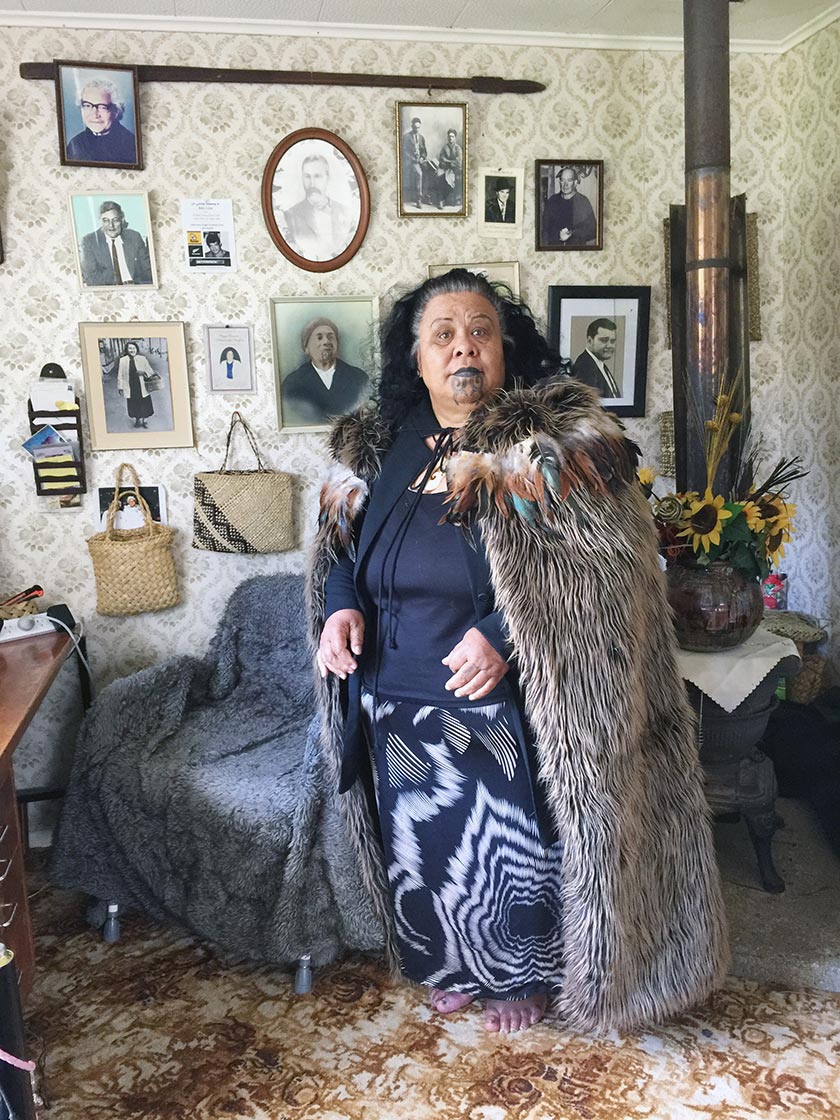McIntyre did take photos of newborns and their parents on occasions when working for 16 years in Wellington Hospital’s neonatal unit – often parents or the nurse educator would ask her to – but it wasn’t until she moved to Kākahi in the King Country in 2010 that her interest really began to flourish.
Kākahi is where she had often holidayed as a child with her parents – celebrated New Zealand artist Peter McIntyre and her mother Patti. They owned land there and McIntyre decided to move into an old house on part of it.
Initially she worked as a district nurse based at Taumarunui Hospital – the first time she had worked with adults and not in a hospital ward. Being able to treat people in their own homes helped her form close bonds with the people of the area, most of them living in isolated communities, some an hour’s drive from the hospital.
“I began taking photos of the people I knew well, going back after appointments to capture the essence of them and their surroundings. My brother persuaded me to share the photos on Instagram. Auckland gallery owner Anna Miles invited me to exhibit more than 50 of the photos in 2016. This then led to my recently published book, Observations of a Rural Nurse.”

Many of the people of Kākahi feature in the book, just as they did in paintings by her father, who published them in a book called Kākahi New Zealand in 1973.
“I am of this place too – I am not an outsider looking in,” McIntyre said. “Many scenes are from my own home, and show the changing seasons and light, and many of the people are my long-time friends.”
McIntyre gave up nursing two years ago, principally to give her time to finish, then promote the book. She was also finding the workload increasingly demanding, with her casual hours doubling in the time she was there.
Observations of a Rural Nurse, published by Massey University Press in hard cover, has been described as “a magnificent tribute to small town Aotearoa”. When Kai Tiaki Nursing New Zealand spoke to McIntyre, she was nearing the end of a month-long trip in the South Island, speaking to different groups about the book.
“People from small towns really relate to it,” she said. “It reminds them of their own childhood and is a picture of an older New Zealand that is fast disappearing. For others, it’s an eye-opener, capturing a part of the country that has largely been forgotten. Nurses seem to like it particularly.”


